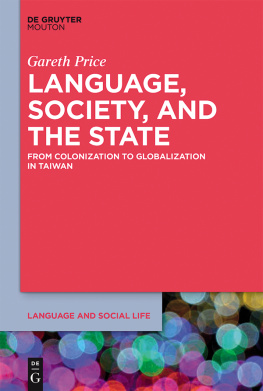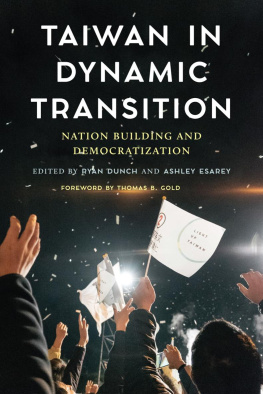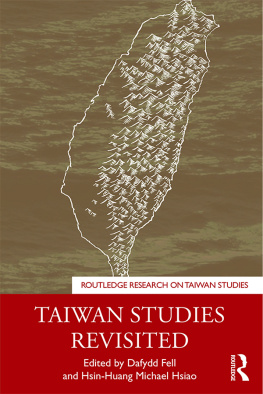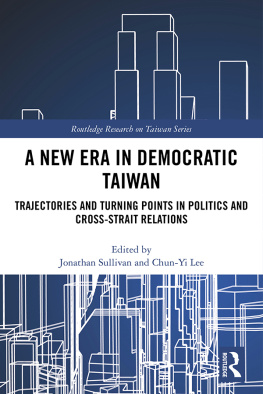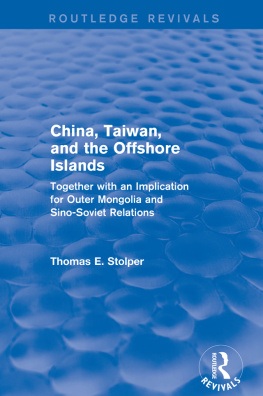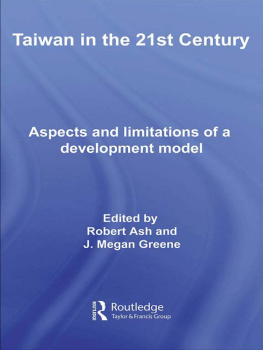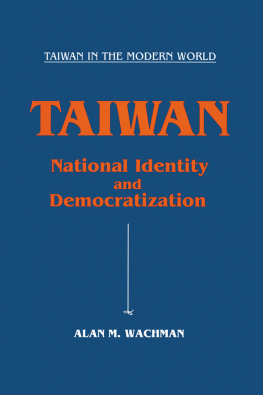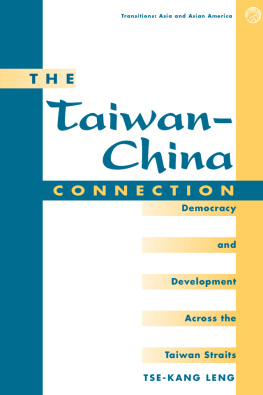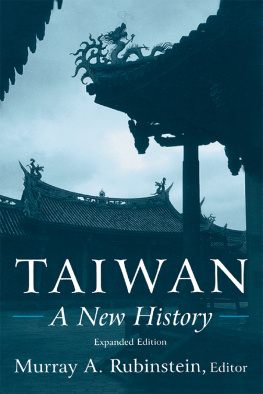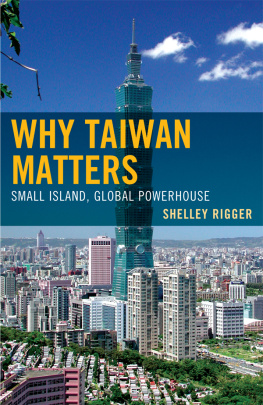In Memory of E. H. G.

First published 1986 by M.E. Sharpe
Published 2015 by Routledge
2 Park Square, Milton Park, Abingdon, Oxon 0X14 4RN
711 Third Avenue, New York, NY 10017, USA
Routledge is an imprint of the Taylor & Francis Group, an informa business
Copyright 1986 Taylor & Francis. All rights reserved.
No part of this book may be reprinted or reproduced or utilised in any form or by any electronic, mechanical, or other means, now known or hereafter invented, including photocopying and recording, or in any information storage or retrieval system, without permission in writing from the publishers.
Notices
No responsibility is assumed by the publisher for any injury and/or damage to persons or property as a matter of products liability, negligence or otherwise, or from any use of operation of any methods, products, instructions or ideas contained in the material herein.
Practitioners and researchers must always rely on their own experience and knowledge in evaluating and using any information, methods, compounds, or experiments described herein. In using such information or methods they should be mindful of their own safety and the safety of others, including parties for whom they have a professional responsibility.
Product or corporate names may be trademarks or registered trademarks, and are used only for identification and explanation without intent to infringe.
Library of Congress Cataloging-in-Publication Data
Gold, Thomas B.
State and society in the Taiwan miracle.
Includes bibliographical references (p.)
1. TaiwanEconomic conditions1945 . 2. TaiwanPolitics and government1945. 3. Taiwansocial conditions. I. Title.
HC430.5 G65 1985 338.95T249 85-2350
ISBN 0-87332-399-8 (paper)
CIP
ISBN 13: 9780873323994 (pbk)
When writing about places as controversial as Taiwan, it appears to be common practice to put quotation marks about affirmative words such as miracle to inform readers of the authors profound skepticism about supposed achievements there. I have not put quotation marks around the word miracle in the title of this book for the simple reason that I think the people of that island nonnation have made miraculous progress at rapid growth, structural change, improved livelihood, and political democratization. I do not mean miraculous in the sense of a unique, nonrecurring God-given event, but rather as a wondrous recovery by dint of very human effort from a morass of destruction and despair.
I neither deny nor gloss over the past and present shortcomings of Taiwans political system or the dangers inherent in its type of economic strategy. Part of the miracle is the fact that the ruling Chinese Nationalist Party (KMT), notorious for heading one of historys most corrupt, violent, and incompetent regimes during its days on the Chinese mainland, successfully undertook an internal reform, established a new relationship with Taiwanese society after brutalizing and alienating it, and spearheaded rapid economic growth with social and political stability. Another aspect of the miracle is the positive response of society to the limited but real opportunities offered it.
It required crushing defeat in one of this centurys greatest popular revolutions to bring reform about, but how many other regimes in Asia, Africa, or Latin America, in circumstances far less desperate than those of the KMT in 1949, could muster the will to undertake such a cleansing and readjustment?
Although this book presents a case study of Taiwan, it is addressed as much to social scientists and others concerned with larger issues of development and underdevelopment as to Asianists. With few exceptions, the dominant theories in the field, aside from those of economists, were derived from studies of the failures and distortions of capitalist development strategies in Latin America. Theories and generalizations were not tested for East Asian cases. Virtually no one beside economists even analyzed East Asia, and, as I argue in the first chapter, the economists studied neglect of politics has bequeathed a somewhat distorted and mystified picture of the East Asian model to scholars and planners outside the region. I hope through this book to bring the data from Taiwan and the other East Asian capitalist societies into the mainstream and to demystify the new economic orthodoxy about East Asian development.
The concepts of dependency and bureaucratic authoritarianism, which emerged from the Latin American field, are under severe attack now. Several countries, especially those in East Asia, share structural features of dependency but have avoided so far the same unfortunate consequences. And even in Latin America itself, the stalwart exemplars of bureaucratic-authoritarianism, such as Brazil, Argentina, and Peru, are now undergoing a definite return to democracy.
Rather than completely abandon these concepts, I have retained them here, critically to be sure, so as to make Taiwan a comprehensible case for the larger development community and at the same time to begin to reconceptualize the nature of development, dependency, and world system. The successful East Asian cases demonstrate clearly the potential benefits and dangers of consciously tying a nations development to the world system and global product life cycle. They also show the costs and benefits of authoritarian exclusionary regimes at certain stages of this process; when they can be functional, when dysfunctional; and how change can be brought about.
This book represents an attempt on my part to come to terms with my two years of teaching and traveling in Taiwan from 1970 to 1972 as an Oberlin Shansi representative at Tunghai University. During that period, just as the economic takeoff was consolidated and the standard of living was rising rapidly, the external environment turned extremely nasty: Taiwans withdrawal from the United Nations under pressure, the Nixon trip to mainland China, severed diplomatic relations with numerous Western countries, rising protectionism. Generalissimo Chiang Kai-sheks son, Chiang Ching-kuo, became premier. He was widely regarded as an ultra-authoritarian enemy of democracy and business, the Soviet-trained boss of the ubiquitous secret police. People lined up to emigrate, capital fled, liberals moaned.
By the time I returned in September 1977 to do research for my doctoral dissertation, Taiwan had weathered diplomatic isolation, the first oil crisis, industrial restructuring, and Chiang Ching-kuos consolidation of power. Through enlightened policies aimed at uniting the populace and skillful manipulation of the media, he had transformed his public image to that of a warm and concerned man of the people. Two months after I arrived, Taiwans democracy movement emerged and became an ineradicable part of the political scene.
I left at a time of despair and returned at a time of constructive ferment. Taiwans society, economy, culture, and long stagnant political system were embarking on a fundamental, broadly based transition. For some, the pace was too slow; for others, any change was tantamount to inviting a Communist takeover. For a comparative sociologist steeped in cases of development failures, the contrast of Taiwan offered a remarkable laboratory for a longitudinal study to test theories of economic, social, political, and cultural change.





